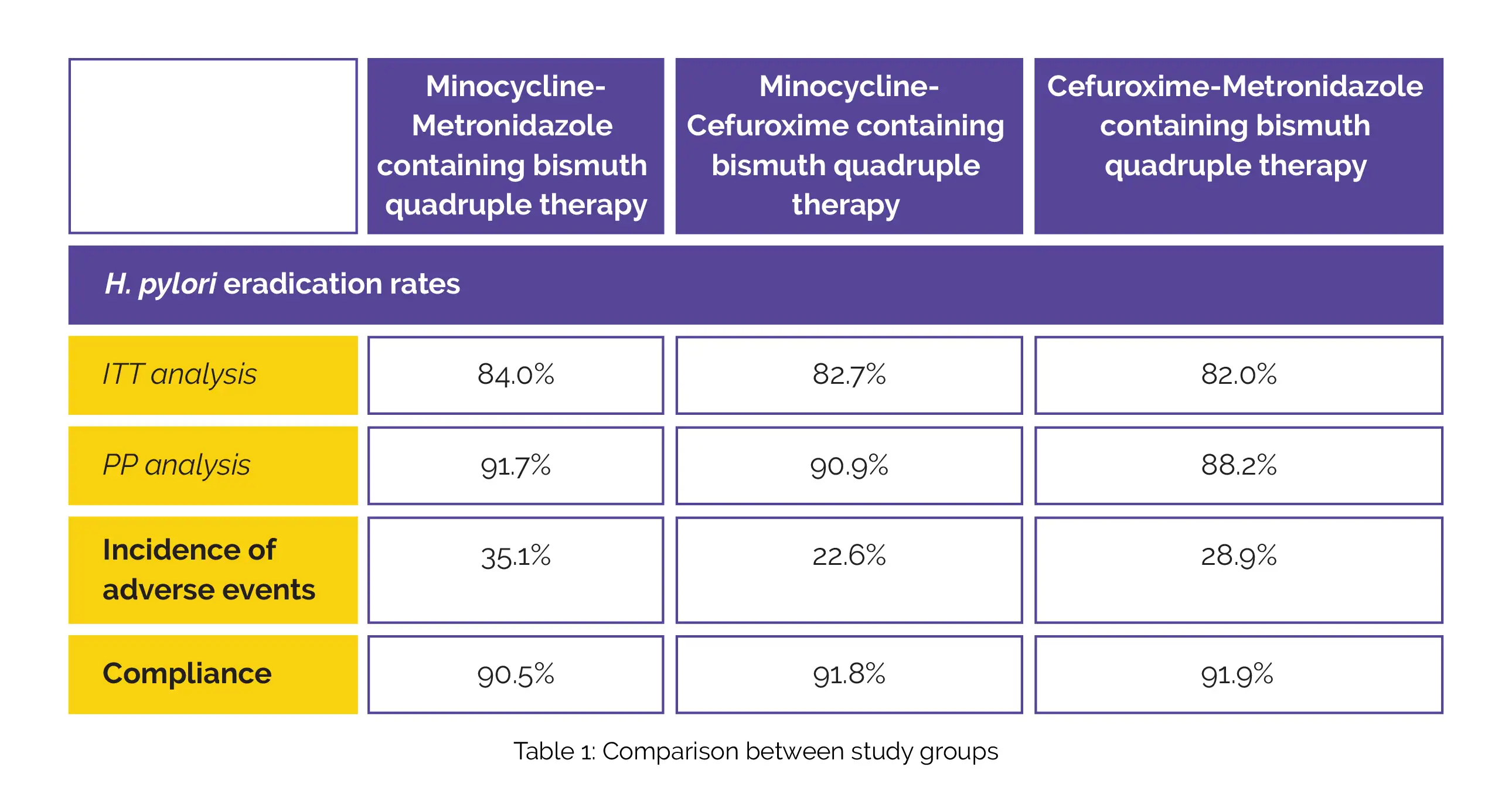Categories
Change Password!
Reset Password!


Efficacy, safety, and compliance of three bismuth quadruple treatments containing Minocycline, Cefuroxime, and Metronidazole are comparable for H. pylori eradication in people with penicillin allergies.
In a randomized controlled trial, the first-line H. pylori elimination efficacies of three bismuth quadruple treatments, consisting of Minocycline, Cefuroxime, and full-dose Metronidazole, were comparably satisfactory with relatively high safety and compliance in patients with penicillin allergies. Researchers compared eradication rates, safety, and compliance of three novel bismuth quadruple therapies.
Overall, 450 naive subjects with penicillin allergy and H. pylori infection were incorporated. The 14-day bismuth quadruple therapies with Minocycline-Metronidazole (100 mg Minocycline two times a day and 400 mg Metronidazole four times a day), Cefuroxime-Metronidazole (500 mg Cefuroxime two times a day and 400 mg Metronidazole four times a day), and Minocycline-Cefuroxime (100 mg Minocycline two times a day and 500 mg Cefuroxime two times a day) were given to the subjects at random.
Within three days following H. pylori elimination, safety and compliance were evaluated. To assess the endpoint, a urea breath test was conducted 4-8 weeks following elimination. The differences in eradication rates between the Minocycline-Metronidazole, Minocycline-Cefuroxime, and Cefuroxime-Metronidazole-containing bismuth quadruple treatments were not clinically meaningful in both the intention-to-treat (ITT) and the per-protocol (PP) analysis. The occurrence of adverse events and compliance were comparable (Table 1).

Minocycline-containing regimens were more likely to cause dizziness, whereas Metronidazole-containing regimens were more likely to cause anorexia, nausea, and taste distortion. Allergy was uncommon (~3%). The three novel bismuth quadruple therapies exhibited a comparable rate of H. pylori elimination, safety, and compliance in individuals with penicillin allergies.
Helicobacter
New regimens as first-line eradication therapy for Helicobacter pylori infection in patients allergic to penicillin: A randomized controlled trial
Zhang Y et al.
Comments (0)